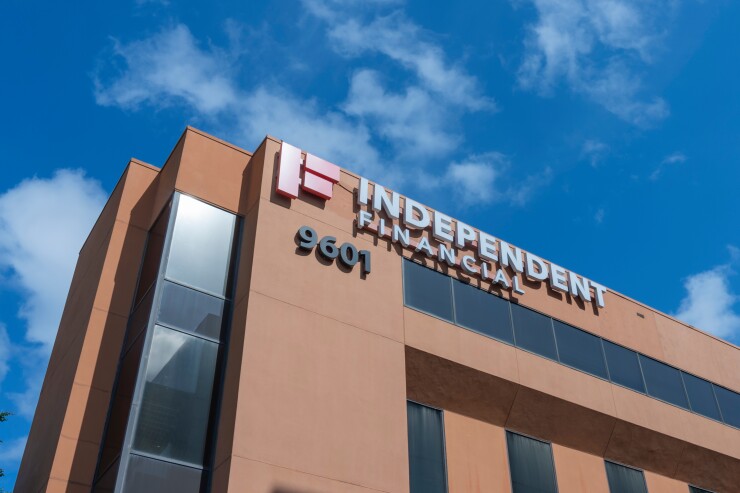
Bank
As of June 14, there were
Through mid-June, there were a total of 54 bank M&A transactions announced this year with a total deal value of $6.5 billion. The volume of deals put the industry on
Total value, however, is on pace to far surpass the $4.15 billion worth of deals announced last year and the $8.95 billion announced a year earlier, though it would still fall shy of the $76.7 billion total in 2021.
The
That deal edged out Kansas City, Missouri-based UMB Financial's almost $2 billion all-stock
SouthState had made several acquisitions in recent years, but the Independent deal marked its first since early 2022, when it acquired Atlantic Capital Bancshares. SouthState CEO John Corbett said during a call with analysts after the Independent deal was announced last month that the company remains open to more M&A, particularly in high-growth markets such as Texas.
"We've been accumulating excess capital and building reserves above our peers so that we have the dry powder to invest when the time is right," Corbett said.
In a midyear M&A outlook, PwC's research team said bigger banks are hunting for strategic options to
"In a fast-changing and competitive market, banks need to be proactive" and "agile to capture value and growth," said Dan Goerlich, PwC's U.S. banking and capital markets leader.
Still, deal volume is only slowly gathering momentum following the Federal Reserve's campaign to push interest rates higher over the past two years to tame inflation. High borrowing costs slowed banks' loan growth and business owners' new investments, raising recession worries. Lofty rates also drove up banks' deposit costs and contributed to uncertainties that made it difficult for bank buyers to assess the health of targets.
A string of three regional bank failures in 2023 added to the uncertainty. The collapses also galvanized federal policymakers to further ratchet up regulatory reviews to prevent future failures, analysts said. This came atop the Biden administration's policy of increased M&A regulatory scrutiny. Lengthy review periods have delayed dozens of bank deals this decade. Several were nixed altogether.
Most recently, two Louisiana banks
Following an "extensive review of the
For all the potential roadblocks, analysts noted that the Fed has not raised rates since July of last year. Policymakers have signaled that their next move most likely will be a rate reduction, given that inflation fell from a peak above 9% in 2022 to nearly 3% this year.
At the same time, recession fears proved overblown. The economy grew throughout 2023 and the first quarter of this year. The Atlanta Federal Reserve Bank estimated that U.S. gross domestic product is expanding at a 3% rate in the current quarter.
Fed Chair Jerome Powell noted in a press conference after policymakers' June meeting that he still wants greater confidence that inflation "is moving sustainably towards 2%" before lowering rates. But he also emphasized that inflation is modestly moving toward the Fed's objective while the economy remains healthy.






